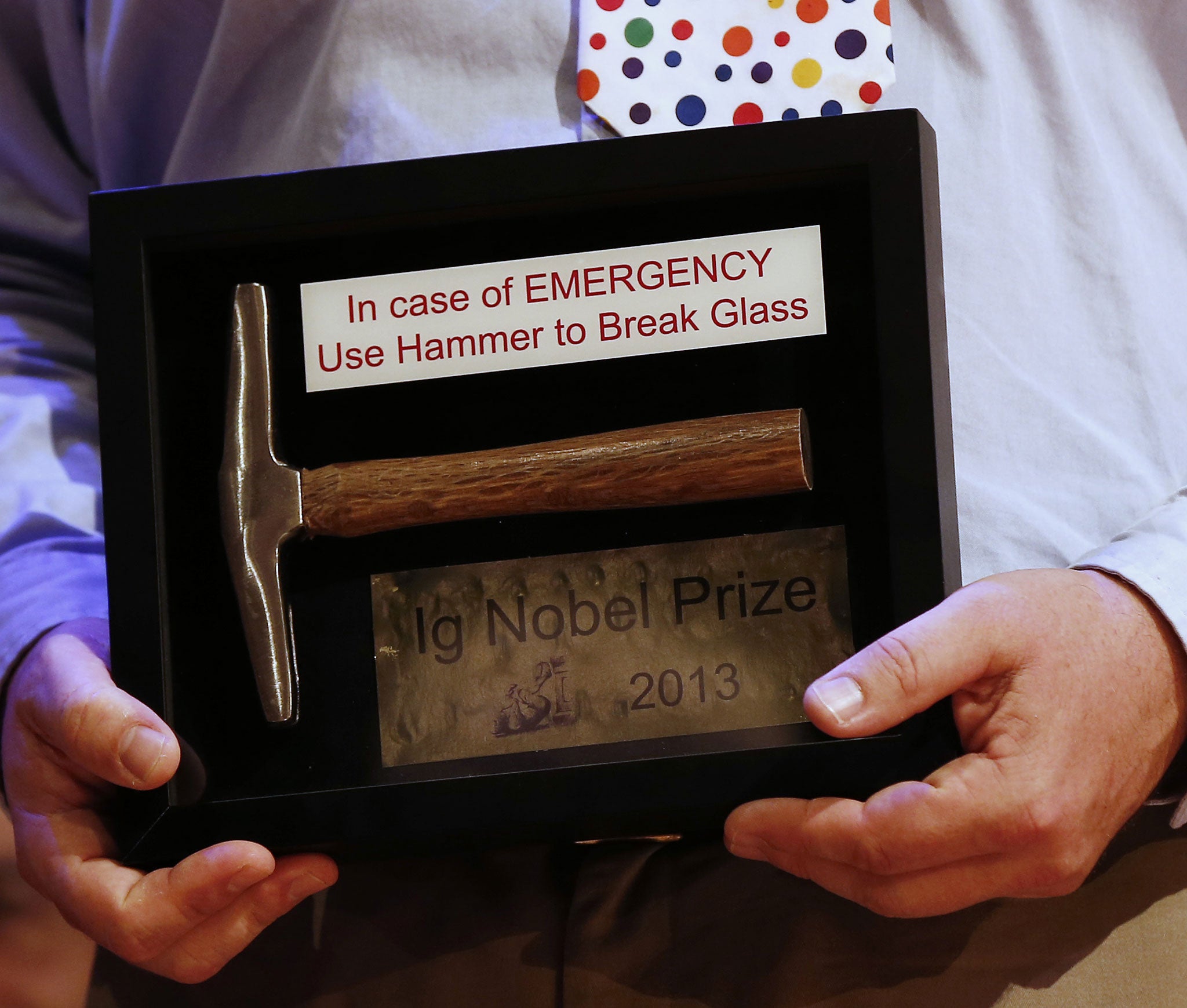And the winners aren't... Ig Nobel prize 'celebrates' silly science - from penis amputation research to star-gazing dung beetles and walking on water

Your support helps us to tell the story
From reproductive rights to climate change to Big Tech, The Independent is on the ground when the story is developing. Whether it's investigating the financials of Elon Musk's pro-Trump PAC or producing our latest documentary, 'The A Word', which shines a light on the American women fighting for reproductive rights, we know how important it is to parse out the facts from the messaging.
At such a critical moment in US history, we need reporters on the ground. Your donation allows us to keep sending journalists to speak to both sides of the story.
The Independent is trusted by Americans across the entire political spectrum. And unlike many other quality news outlets, we choose not to lock Americans out of our reporting and analysis with paywalls. We believe quality journalism should be available to everyone, paid for by those who can afford it.
Your support makes all the difference.The Ig Nobel prize winners have been announced, with stargazing dung beetles, penis amputations and rodent guzzling recognised in an award ceremony that celebrates the sillier side of scientific research.
Academics from around the world gathered for the ceremony, held annually at Harvard University and winners were given just 60 seconds to make an acceptance speech or risk being booed off stage by an eight-year-old girl.
The obscure, the improbable and the obvious were honoured in full, with a UK team of scientists scooping an Ig Nobel in the ‘Probability’ category for discovering that cows are more likely to stand up the longer they have been lying down.
Livestock researchers from Scotland's Rural College also concluded that once a cow had stood up it was quite difficult to predict when it would lie down again.
Another team of researchers, this time from France and the US, were rewarded for discovering that drinking alcohol makes people think they are more attractive as well.
Knocking back the wine also makes others appear more alluring, a fact frequently observed among the lubricated in pubs and clubs.
The Archeology prize was awarded to a scientists Brian Crandall and Peter Stahl, for their dedication to discovering what happens to human’s digestive system when you swallow a dead shrew.
A European team of scientists were honoured in the ‘Physics’ classification for their devout discovery that people really can walk on water. However before Jesus’s famous feat appears any less numinous, the research also showed it would only be possible if that person and the water was on the moon.
Joint Prize in Biology and Astronomy went to the team which discovered dung beetles navigate their way home by looking at the milky way. Tongue firmly in cheek, the Safety Engineering prize was awarded for the invention of a system that traps airplane hijackers in an airtight pod before ejecting them out the plane and parachuting them to earth where they are picked up by police. Sadly inventor Gustano Pizzo died in 2006.
Organised by the humour magazine Annals of Improbable Research,the Ig Nobel prizes have a more serious side too, intending to recognise research that “first makes people laugh, and then makes them think”.
Reflecting this in some ways, the Peace prize was awarded to the President of Belarus for making it illegal to applaud in public.
Authoritarian leader Alexander Lukashenko rules the former Soviet nation with draconian laws, which led to German foreign minister Guido Westerwelle labelling him ‘Europe’s last dictator’ in 2012. Lukashenko responded to Westerwelle, who is openly homosexual, that it was “better to be a dictator than gay”. Joint winner with Lukashenko were the Belarus State Police who managed to arrest a one-armed man for applauding.
The Public Health prize and Medicine prize were awarded for matters seemingly ludicrous but definitely not to be laughed at.
A study into penile re-attachment after amputations, often by jealous wives, was recognised in the former category, and the assessment of how listening to opera affects mice heart transplant patients in the latter.While researchers admitted they werent exactly sure why opera helped the mice recover, the harmony of Verdi and Mozart could be the new weapon in helping transplant patients to recover. Which is music to medicine's ears.
Join our commenting forum
Join thought-provoking conversations, follow other Independent readers and see their replies
Comments